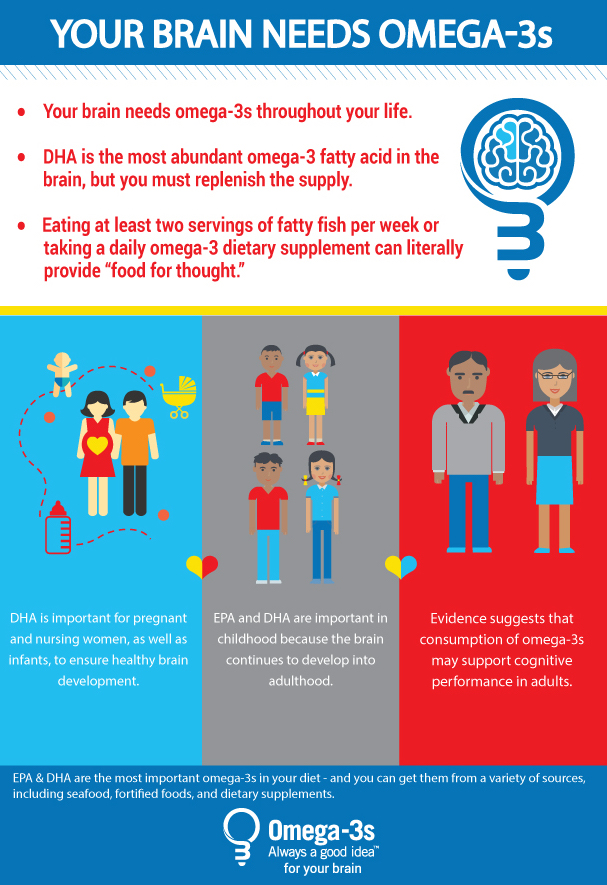Omega-3s & Brain Health
Fat makes up a large portion of human brain tissue and the good omega-3 fat, DHA, makes up a significant percentage of the fat in the brain. Just as calcium is essential for building strong bones, the brain needs DHA for optimal development.

Neurons in the brain process and transmit electrical and chemical “messages” that enable our bodies to function normally. Neurons are rich in the omega-3 DHA; therefore, a diet deficient in DHA will deprive the nervous system of a critical nutrient and may impair the brain’s ability to function optimally.
Omega-3s and the infant brain
DHA intake is extremely important during pregnancy and lactation for mom and baby alike. During the prenatal time, there is a significant demand for and rapid accumulation of specific fatty acids, including AA (arachidonic acid) and DHA in the infant brain, DHA in the retina (eye) and AA in the cells throughout the entire body. The human brain relies on DHA for proper growth and development and it continues to accumulate DHA up to age 18, but it does so most aggressively from about halfway through gestation to two years of age. Developing infants must obtain this vital nutrient through the placenta during pregnancy and from breast milk after birth. Because the mother is the sole source of DHA for the developing baby, it is critical that pregnant and nursing mothers consume enough omega-3s to ensure proper brain development for the baby.
Omega-3s and cognition
Cognition is mental processing that includes working memory, comprehending and producing language, calculating, reasoning, problem solving and decision-making. As we age, our brains naturally do not perform the same way they did in our younger years. A lifetime of healthy habits, including getting enough omega-3s, may help.

